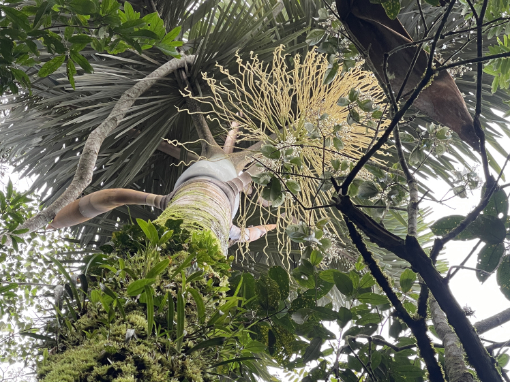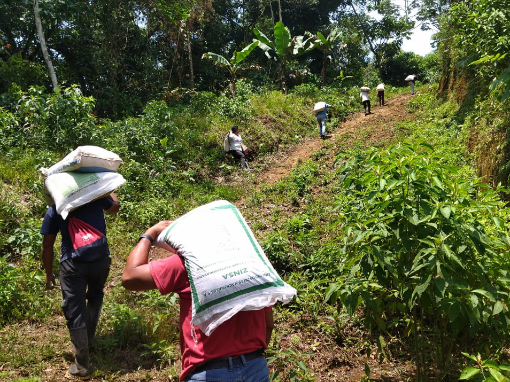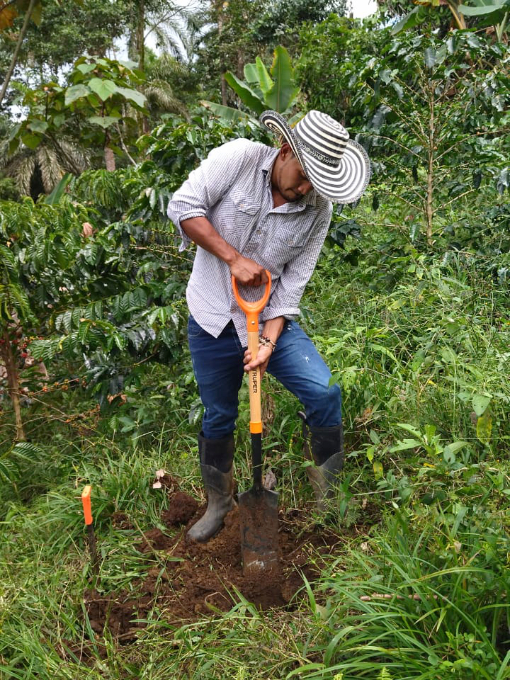What is Chakra and Why Is It Important?
In some of Ecuador’s most biodiverse places, there lies an ancient and sustainable method of farming known as the chakra. This agricultural practice is deeply rooted in the traditions of most Indigenous communities in the Andes and the Amazon.
The Essence of Chakra: Polyculture
Chakra is much more than a farming technique. It’s a way of life that respects the natural processes of the forest.
At its core, chakra is a system of polyculture. This means growing multiple crops in the same space, imitating the diversity found in natural ecosystems. Polyculture contrasts sharply with monoculture, the dominant approach that focuses on a single crop. Monocropping often leading to biodiversity loss and soil degradation.
In the Chakra system, crops such as fruits, vegetables, medicinal plants, and trees coexist. This diversity ensures nutritional variety for the farmers and creates a robust ecosystem capable of warding off pests and diseases, reducing the need for chemical inputs.

The Chakra in Wawa Sumaco
In the Sumaco region, it is common to find monoculture crops like naranjilla that require large amounts of pesticides and chemical inputs. Many of these chemicals are dangerous for farmers and their families. Furthermore, after 5-7 years, these monoculture plots stop producing sufficient fruit. Farmers then cut down more forest to grow more naranjilla.
However, 45 farmers in Wawa Sumaco have pledged to restore the chakra on their properties, including 25 women-led farms. These farmers are willing to return to this regenerative farming practice because it will provide food for their families, products to sell at local markets, and perennial crops like coffee and cacao which can be sold on the international market.

The Importance of Chakra
There are several reasons why Chakra is important for the future of Ecuador’s Amazon:
- Biodiversity: By emulating the natural diversity of the forest, chakra systems help conserve a wide variety of flora and fauna.
- Soil Health: Chakra farming enriches the soil, promoting the retention of moisture and nutrients through organic matter recycling.
- Cultural Heritage: Chakra is a testament to the deep connection Kichwa communities have with their land. It embodies centuries-old knowledge and practices that emphasize living in harmony with nature.
- Climate Change Mitigation: Through agroforestry, Chakra systems contribute to carbon sequestration. This makes Chakra an ally in the fight against climate change.
- Circular Economies: Chakra supports the livelihoods of Indigenous and rural communities by providing a diverse array of products for both consumption and market sales, fostering economic resilience and food security.

Looking Forward
As the world grapples with the challenges of climate change, biodiversity loss, and food insecurity, the principles underlying the chakra offer valuable solutions into sustainable living and agriculture. By learning from this ancient practice, we can develop more resilient food systems that not only feed us but also heal our planet.
Further Reading
If you are interested in reading about the science behind polyculture and successful chakra projects, check out these articles:
- The Amazonian Chakra, a traditional agroforestry system managed by Indigenous communities in Napo province, Ecuador
- Management of trees and palms in swidden fallows by the Kichwa people in the Ecuadorian Amazon
- Indigenous food sovereignty and tourism: the Chakra Route in the Amazon region of Ecuador
- Co-Evolution and Bio-Social Construction: The Kichwa Agroforestry Systems (Chakras) in the Ecuadorian Amazonia

0 Comments